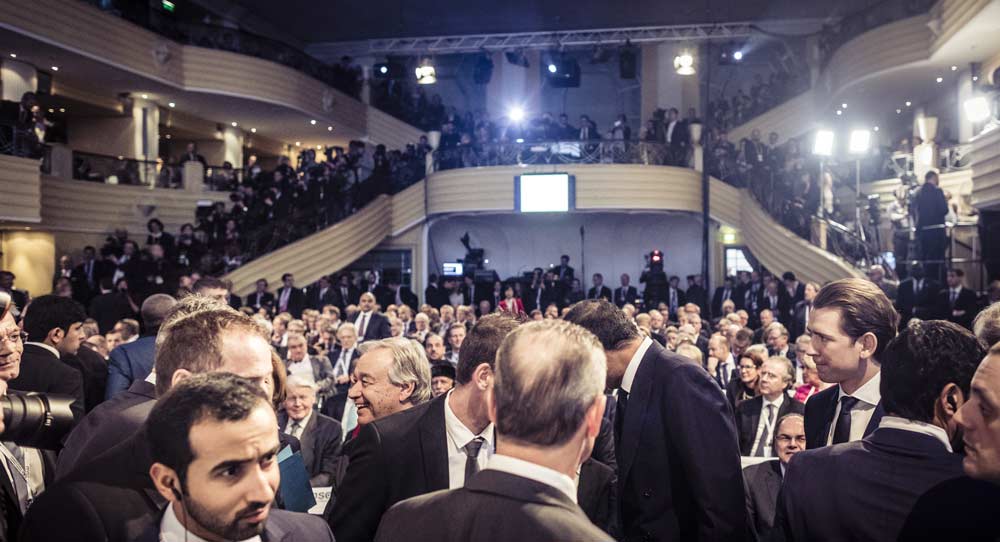Carnegie Europe was on the ground at the 2018 Munich Security Conference, offering readers exclusive access to the debates as they unfold and providing insights on today’s most consequential threats to international peace.
*
Jean AsselbornMinister for Foreign and European Affairs, Luxembourg
The wars in the war in Syria. They could have huge impacts for the whole of the Middle East.
Nikola DimitrovMinister of Foreign Affairs, Republic of Macedonia
The tendency to look inward at a time when we need more global engagement.
Lyse DoucetChief international correspondent at the BBC
The lack of trust between the major powers and the major institutions that govern the world.
Mikheil JanelidzeMinister of Foreign Affairs, Georgia
Rising insecurity due to the concentration on internal politics.
John KerryVisiting distinguished statesman at the Carnegie Endowment for International Peace, and former U.S. Secretary of State
Leadership and the absence of strong governance.
Ivan KrastevChairman of the Centre for Liberal Strategies
That less and less world leaders understand what is going on. There is a sense of mass disorientation.
Hans-Dieter LucasGerman ambassador to NATO
Complexity, unpredictability, and volatility. They are a breeding ground for major crises.
Jüri LuikMinister of Defense, Estonia
The enormous risks in cyberspace.
Michael McFaulDirector of the Freeman Spogli Institute for International Studies at Stanford University
The possibility of war in North Korea.
David MilibandPresident and CEO of the International Rescue Committee
The loss of confidence that the world’s problems are soluble.
Cem ÖzdemirMember of German Bundestag
That someone who stands for the opposite of Western values is sitting in the White House, the house of Western democracy.
Aleksey PushkovChairman of the Commission on Information and Media of the Federation Council, Parliament of the Russian Federation
The crisis of international law and the end of the rules-based system by a number of actors.
Kenneth RothExecutive director of Human Rights Watch
The failure of the political middle to vigorously defend democratic values in the face of the populist backlash.
Marc RuttePrime Minister of the Netherlands
Climate change.
Javier SolanaFormer secretary general of NATO and former EU foreign policy chief
The unpredictability of the United States, and the discrepancy between fantastic economic growth and the state of politics.
Ellen O. TauscherMember of the Board of Directors, Nuclear Threat Initiative
That politics has become so polarizing it is very difficult to get consensus on major issues.
Ambika VishwanathGeopolitical and strategic consultant, Mumbai
Not putting water on the geosecurity agenda.








